Writer Joseph J. Airdo // Photography by Jasmine McAreavy
Chelsea Harden has always viewed horses as a lens to authentically view the world and to see what is directly in front of her.
“With so much around us, especially today, that is highlight reels, it is so hard to differentiate what is real and what is not real,” Harden explains. “Being with horses has always grounded me and allowed me to see and work with others from a space that is authentic, is real and is accessible.”
That is why in 2014 Harden founded The H.E.A.R.T. Center, a nonprofit organization that provides alternative and intentional therapeutic learning opportunities to children with social learning challenges and related disorders.
Comprised of a micro-school, an equine therapy program and a recreational therapy program, The H.E.A.R.T. Center strives to empower individuals with special needs to build confidence and develop life skills through recreation- and activity-integrated educational programs.
Harden acknowledges that Arizona is rich with equine therapy programs — which is of great benefit to the people who call our state home.
“We have a variety of programs out here that clients have access to,” Harden says. “Each one targets a different group. We primarily focus on students with special needs — mostly being students on the autism spectrum or with related disorders. The thing that sets us apart is that my vision has always been to take what we do with equine therapy and adaptive recreation camps and turn it into a school for kids with special needs.”
Love at First Ride



“I have always been drawn to horses,” Harden says. “I came across a therapeutic riding program when I was growing up as a teenager in California. When I was in high school, that is where I spent most of my time on the weekends. While volunteering, making friends and getting to know the students and staff, I fell in love with it. I knew that it would be a part of my life forever. I just did not know how.”
While attending Arizona State University, Harden began learning about recreation therapy. As she grew as a professional, she was introduced through another local program to adaptive recreation camps — therapeutic programs and leisure activities for those with disabilities.
“We were seeing such great progress in terms of not only attainment of goals but also the engagement of the students,” Harden says. “Parents were always happy to be able to have their kids in camp because they knew that their kids were really targeting a lot of their therapeutic goals in ways that were fun for them and ways that the students were interested in learning.”
Having always recognized the potential of weaving such a program into education, she worked to make her dream a reality when the environment began to shift to private schools and micro-schools.
“Here in Arizona, we have a wonderful community for school choice and for people to take their children’s education into their own hands,” Harden says. “We knew that infusing learning goals into recreation — especially working with horses — was a model that really fit for the students that we serve. So we were able to take our therapeutic riding program and grow it into a micro-school for students with special needs.”
The H.E.A.R.T. Center works with parents to build alternative education programs that best suit their child’s individual learning needs, thereby providing a unique high school experience and equine vocational program that, together, prepare them for post-graduation employment and volunteering opportunities.
“I have worked really closely with the families that I have serviced for a long time,” Harden says. “I have had some clients that have been with me since they were five or six years old. Now they are in high school and getting ready to graduate and start that transition into adulthood. Being able to work with these families and build a program based on the needs of these students has been such a privilege.”
Magic Makers
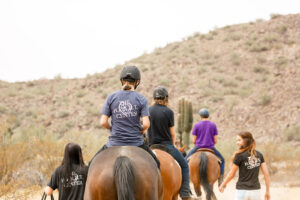


The H.E.A.R.T. Center program director Regan Mays says the mico-school is just one of three overarching programs offered by the nonprofit organization.
“Within each program, we offer an array of services to choose from and we have specialized staff for each one so families are supported in creating individualized treatment plans that can truly fit their needs,” she explains. “Most of our students participate in two or more programs so we can blend their academic, therapeutic and life-skill goals seamlessly together.”
The H.E.A.R.T. Center’s micro-school is essentially a blend of homeschooling and traditional school.
“It revolves around the horses and has two academic pathways — traditional high school or post-graduation, focusing on essential life and vocational skills needed for employment,” Mays says. “The best part of this program is how our students love coming to school. Their parents cannot share enough how thrilled it makes them to see their kids excited to wake up on a school day.”
Meanwhile, The H.E.A.R.T. Center’s equine therapy program involves therapeutic riding, horsemanship and equine-assisted learning.
“Students work with certified Professional Association of Therapeutic Horsemanship International [instructors] and have the opportunity to participate in local horse shows,” Mays says. “It involves working closely with the horses — which are magical beings. They provide companionship and a safe space for our students to feel free and be understood.”
The H.E.A.R.T. Center’s recreational therapy program is the nonprofit organization’s most diverse program.
“It rotates through activities based on the season and what the students like to do,” Mays explains. “All students work with a certified recreational therapist and participate in activities like yoga, soccer and swimming.”
The skills, self-confidence and empowerment people gain while participating in sports and recreation activities transfer into their daily lives and help them to become healthier, happier and more productive students and individuals. The program introduces people with disabilities to new ways of being healthy and active.
Having seen first-hand how all three programs benefit students and their families, Mays — who has a brother who is disabled — firmly believes that her role at The H.E.A.R.T. Center is her heart’s passion and her soul’s purpose.
“Everyone walks away from a riding lesson with a smile on their face and a bounce in their step,” says Mays, noting that she has enjoyed working with children and horses since she was just a child herself. “I started volunteering in high school with an equine therapy program and gradually turned it into a career. The truth is that the horses are the magic makers. I just create the safe space for it to happen.”
A Moving Transition
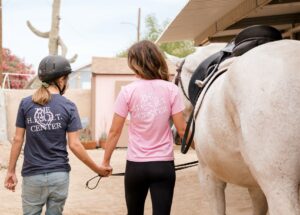


Harden says that although The H.E.A.R.T. Center is located in North Phoenix, it serves students throughout the Valley — from Anthem and Deer Valley to Carefree and Scottsdale.
“We even have students that travel as far as from the East Valley to be part of our services because what we do is so niche and specialized,” she explains.
There is no doubt that the services that The H.E.A.R.T. Center offers are of great value to Valley families. Therefore, Harden is committed to being able to continue to serve them.
“We have been at this location in North Phoenix for seven years now and it has been wonderful for us,” she says. “However, our program has outgrown the space. The property is also being sold. It was too large for us to purchase so we found another space within 10 minutes of our current location that is a perfect fit and the perfect size for everything that we need to and want to be running with our students.”
Harden is grateful that the situation has worked out as well as it has and feels blessed that The H.E.A.R.T. Center has such a wonderful community of families rallying around it to facilitate the transition — which, by the way, has to happen quickly.
“We closed on the new property at the end of January and are going to be moving there at the end of February,” Harden says. “So it really is all hands on deck throughout February for anybody who can help us build the new space.”
Among the many renovation projects at the new site is an old house that needs new flooring, new paint and a couple of cosmetic shifts to make it more accessible for The H.E.A.R.T. Center’s students.
“We also have quite a bit of landscaping needs in terms of leveling some spaces to create parking lots and more flat walkways,” Harden adds. “And we need to build the horse accommodations from the ground up. The barn that is there is not going to quite serve our needs. We are building a new arena, we are building turnouts, we are building all of the things that our students will need to be successful within the equine program.”
Fortunately, the nonprofit organization is no stranger to renovating spaces as its current schoolhouse was at one time just a simple dirt stall.
“This is just taking that on at a bigger level,” Harden says.
Nonetheless, The H.E.A.R.T. Center founder and executive director acknowledges that she and her staff have got a very busy February ahead of them and a lot on their plate. Therefore, they are grateful for any and all help that they can get.
“We will have volunteer workdays on the weekends,” says Harden, noting that community members — especially those with renovation experience or resources — can contact the nonprofit organization to offer their help and support with projects. “Any sort of financial assistance and support is also greatly appreciated.”
Echoing the age-old adage that it takes a village to raise a child, Harden says that it will take every bit of the community’s support to ensure The H.E.A.R.T. Center is able to build up its new property to be its very best version for students.
“But in terms of making it over there, making it happen and providing a safe and easy transition for our students and our horses, we are getting set up for success so that it works out well — even though it is on a short timeframe,” she adds.
Peace, Calm and Understanding
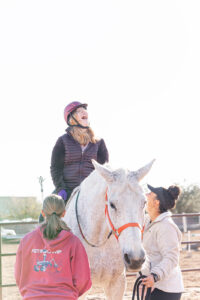


Harden is grateful that she has found a way to not only continue to use horses as that lens with which she can authentically view the world and see what is directly in front of her but also bring students into that space — which she believes fosters an environment of peace and calm where learning is safe.
“Being able to create that space and to share that with others is my favorite part about working with students,” Harden says. “It allows me to be a better version of myself, it allows me to be a better parent and it allows me to teach others to understand students with special needs in a way that people maybe do not think about all of the time.”

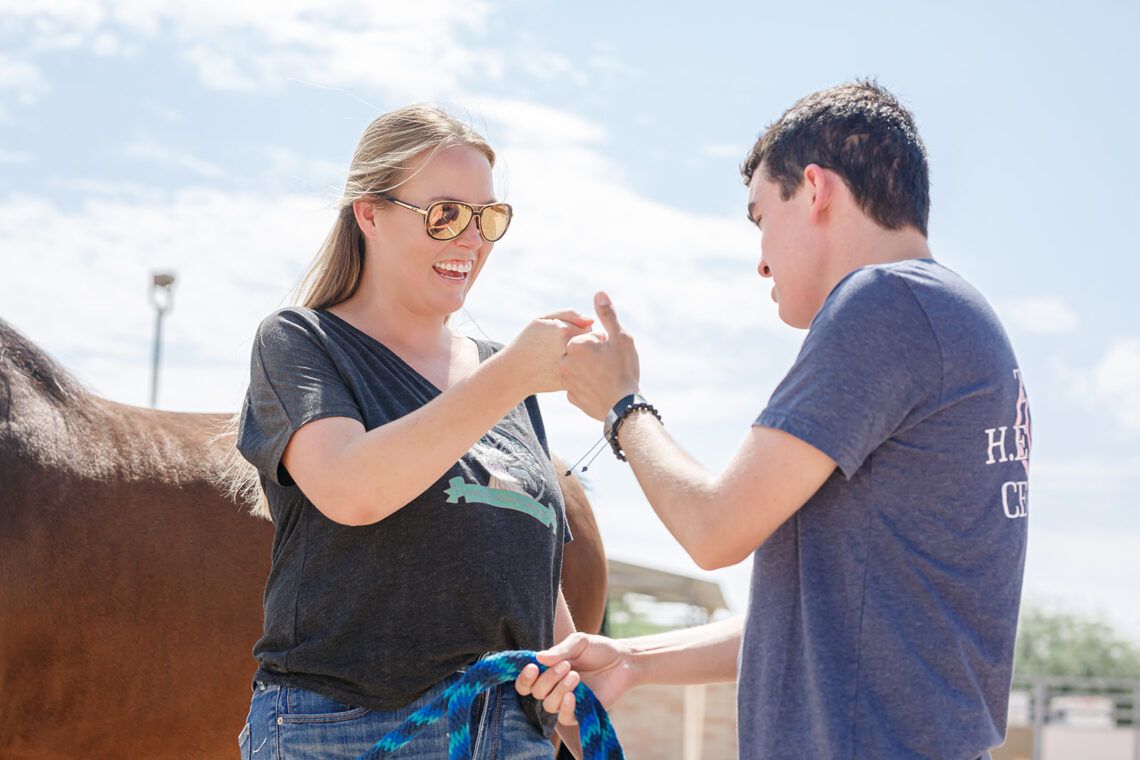


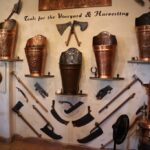


Comments by Admin